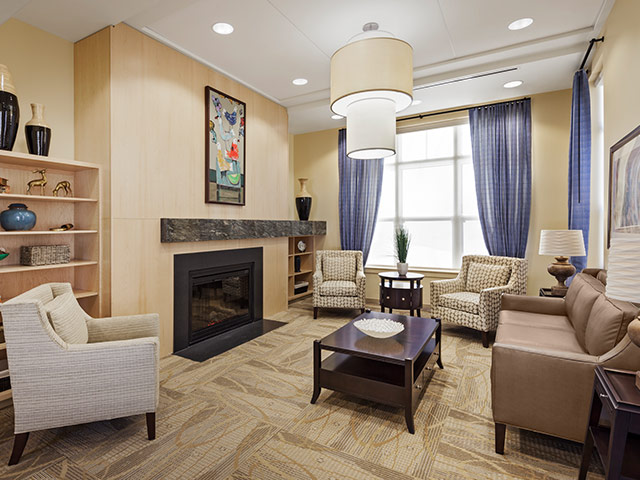Choosing Between Big Facilities and Small Memory Carehomes Charlotte
Choosing Between Big Facilities and Small Memory Carehomes Charlotte
Blog Article
Everything About Memory Care Solutions: Why Little Memory Care Houses Are a Wonderful Option
Memory care services play an important function in supporting people with Alzheimer's and mental deterioration. Tiny memory care homes stand out for their personalized technique and intimate setup. With reduced staff-to-resident ratios, these homes cultivate more powerful links and customized treatment. Citizens take advantage of enhanced social interactions and a risk-free environment. As family members discover alternatives, comprehending the special advantages of tiny memory treatment homes ends up being vital. What aspects should be thought about when selecting the best home?
Understanding Memory Care Services
While several might know with general senior care options, understanding memory care services is essential for family members facing the challenges of cognitive decline. Memory care especially deals with individuals with conditions such as Alzheimer's disease and various other types of dementia. These services offer an organized setting that concentrates on enhancing the lifestyle for locals through specialized treatment and support.Memory care centers are designed to assure safety and safety and security, typically including safeguarded environments to protect against roaming. Trained personnel members are offered all the time to help with everyday tasks, drug management, and personal treatment. Furthermore, memory treatment programs frequently include cognitive excitement activities, tailored to involve citizens and advertise mental health. Families can profit from understanding these services, as they enable informed choices concerning their loved ones' treatment, guaranteeing that their certain needs and preferences are addressed in a caring and helpful fashion.
The Benefits of Tiny Memory Treatment Homes
Little memory treatment homes offer distinctive benefits that can significantly improve the high quality of life for citizens with cognitive problems. One considerable benefit is the intimate environment, which permits individualized interactions amongst team and residents. This smaller setup fosters purposeful connections, lowering feelings of seclusion and anxiousness usually experienced by people with memory issues.Additionally, the lower staff-to-resident proportion in small memory treatment homes allows caregivers to give more attentive supervision and assistance. This approach not only enhances security yet additionally advertises a complacency for the residents.Moreover, little memory treatment homes can adapt rapidly to the distinct demands and preferences of each resident, permitting a much more homey atmosphere. Such a setting can motivate social interaction and engagement in tasks, eventually improving the day-to-day experiences of those living with cognitive problems.
Personalized Care Plans for Residents
Personalized care strategies are important in memory treatment homes, as they provide to the one-of-a-kind requirements and preferences of each homeowner. These plans begin with detailed analyses carried out by competent specialists, who examine cognitive abilities, case history, and individual passions. This tailored technique warranties that care is not only reliable yet additionally respectful of each person's self-respect and autonomy.Moreover, personalized treatment plans are versatile, enabling adjustments as locals' requirements advance over time. This adaptability cultivates a feeling of safety and security and knowledge, which is crucial for individuals living with memory difficulties. Caretakers are educated to implement these plans regularly, giving assistance that aligns with the citizens' regimens and preferences.Ultimately, personalized treatment strategies improve the lifestyle for citizens by promoting self-reliance, wellness, and engagement, making them a basic facet of memory treatment solutions in small memory treatment homes.
Creating a Home-Like Setting
Developing a home-like setting is crucial for promoting comfort and familiarity in memory care setups, as it substantially influences homeowners' emotional well-being. Small memory care homes usually prioritize tailored touches, such as cozy shade schemes, household images, and familiar furnishings plans, which assist homeowners really feel more at convenience. Incorporating aspects similar to a conventional home, like cozy home and public areas, encourages a feeling of belonging.Moreover, making use of natural light and exterior spaces can improve the environment, advertising relaxation and harmony. Personnel play a considerable duty in maintaining this atmosphere by engaging with citizens in a caring way, treating them like household. Routine tasks, such as cooking or horticulture, can also contribute to a home-like feeling, offering possibilities for citizens to take part in significant experiences. Overall, creating a nurturing setting supports cognitive feature and emotional security, making it a necessary facet of memory care services.
Enhanced Social Interaction and Neighborhood
Enhanced social communication and area are essential parts of memory treatment solutions. By cultivating personalized social interaction and producing a family-like ambience, these solutions promote significant links amongst residents. Group activities and events further encourage participation, helping people really feel more consisted of and sustained.
Personalized Social Interaction
While social interaction is important for total well-being, many individuals with memory problems typically struggle to engage meaningfully with others. Personalized social engagement in memory treatment homes addresses this challenge by developing tailored tasks that satisfy residents' distinct passions and capacities. By focusing on specific preferences, caretakers can promote connections that reverberate deeply with each individual. Activities such as art therapy, songs sessions, and guided discussions promote cognitive stimulation and emotional expression. Furthermore, tiny group settings urge camaraderie and permit for more intimate interactions, improving feelings of belonging. This approach not just combats sensations of isolation but additionally equips homeowners to maintain a sense of identity, ultimately adding to boosted mental health and wellness and lifestyle.
Family-like Environment
In a memory treatment setup, cultivating a family-like atmosphere significantly improves social interaction and develops a sense of area amongst homeowners. Smaller sized memory treatment homes frequently focus on intimate environments, allowing residents to develop closer connections with each other and employee. This nurturing ambience promotes trust fund, which is necessary for people with memory disabilities. Locals are most likely to engage in discussions and share experiences, developing an encouraging network recommended you read that relieves feelings of solitude. The knowledge of common spaces and routines adds to a feeling of belonging, further encouraging social interaction (personalized memory care). In such setups, psychological bonds thrive, leading to enhanced overall health and a better of life for residents as they navigate their day-to-day experiences with each other
Team Activities and Events

Safety and Protection Attributes in Small Houses
Several tiny homes made for memory care incorporate crucial safety and security and safety and security attributes to guarantee the health of residents. These homes usually use safe entrance and leave indicate stop roaming, an usual worry amongst individuals with memory disabilities. Additionally, surveillance systems and alarm system mechanisms improve monitoring, making sure that staff can promptly react to any go uncommon activities.Interior formats are tailored for safety and security, with reduced dangers such as sharp corners and clutter-free pathways. Handrails and non-slip floor covering are normally set up to lower the risk of drops. Personnel are educated in emergency situation procedures, ensuring they are planned for different situations.Moreover, customized treatment plans may consist of assessment of private security demands, offering customized services for every homeowner. In general, these security and safety attributes develop a caring setting where homeowners can prosper while maintaining their dignity and freedom.
Exactly how to Select the Right Memory Treatment Home
Just how can families address assure they select one of the most appropriate memory treatment home for their loved ones? The choice requires cautious consideration of a number of variables. Households ought to review the center's staff certifications and training, making certain that caretakers are experienced in managing memory-related problems. Next, it's crucial to evaluate the home's environment, concentrating on safety features and whether it cultivates a feeling of community and belonging. Going to the facility can provide insight right into day-to-day activities and the social environment, which are crucial for mental excitement and psychological well-being. Furthermore, households need to ask about the care plans offered, guaranteeing they are tailored to individual needs. Lastly, taking into consideration the home's area and availability for household check outs can add to a smoother change. By addressing these facets, family members can make an informed choice that prioritizes their enjoyed one's convenience and lifestyle in a memory care setting.
Regularly Asked Concerns
What Credentials Should Staff Members in Memory Care Homes Have?
Employee in memory care homes need to possess appropriate qualifications, experience in dementia care, strong communication skills, and compassion. Continuous training in behavioral monitoring and therapeutic interventions boosts their ability to support residents successfully.
Just How Do Memory Care Provider Differ From Standard Assisted Living?
Memory care solutions focus particularly on people with memory problems, giving customized support and organized settings. In contrast, standard assisted living provides general support with daily activities, doing not have the tailored strategy necessary for those with cognitive challenges.
What Kinds of Tasks Are Supplied in Memory Treatment Homes?
Memory care homes normally supply a variety of activities designed to involve citizens. Usual alternatives consist of art treatment, songs sessions, cognitive games, exercises, gardening, and get-togethers, all targeted at enhancing health and cognitive feature.
Can Citizens Bring Their Own Possessions to Memory Treatment Homes?
Homeowners can typically bring their very own valuables to memory treatment homes, allowing them to personalize their space - personalized memory care. This technique aids create a familiar environment, promoting convenience and a feeling of identity for the people

Exactly How Are Member Of The Family Included in the Care Process?
Member of the family play an important function in the care process, commonly taking part in decision-making, participating in treatment meetings, and providing psychological support. Their involvement fosters a joint environment, improving the citizen's overall well-being and high quality of life. While several may be acquainted with general senior care options, understanding memory treatment solutions is important for households facing the difficulties of cognitive decrease. These solutions supply a structured atmosphere that concentrates on enhancing the top quality of life for citizens through specialized treatment and support.Memory treatment centers are made to ensure safety and security and safety and security, often featuring protected atmospheres to avoid wandering. Individualized care strategies are vital in memory care homes, as they cater to the one-of-a-kind demands and choices of each homeowner. Personnel members in memory treatment homes ought to have relevant certifications, experience in mental deterioration treatment, solid communication skills, and empathy. Memory treatment services focus especially on individuals with memory disabilities, giving specific assistance and structured environments.
Report this page